Guiding Seniors Through the Transition From Hospital to Home

Coming home after a hospital stay should be a time of relief, but for many seniors, it can feel overwhelming. The familiar comforts of home can suddenly present new challenges, and keeping up with daily routines may not be as easy as before. Family members often step in to help, but knowing exactly what a loved one needs during this delicate time can be difficult.
That’s why having the right support system, like our caregiving team at Always Best Care, in place is so important. A well-planned transition from hospital to home can mean the difference between a smooth recovery and an unnecessary setback.
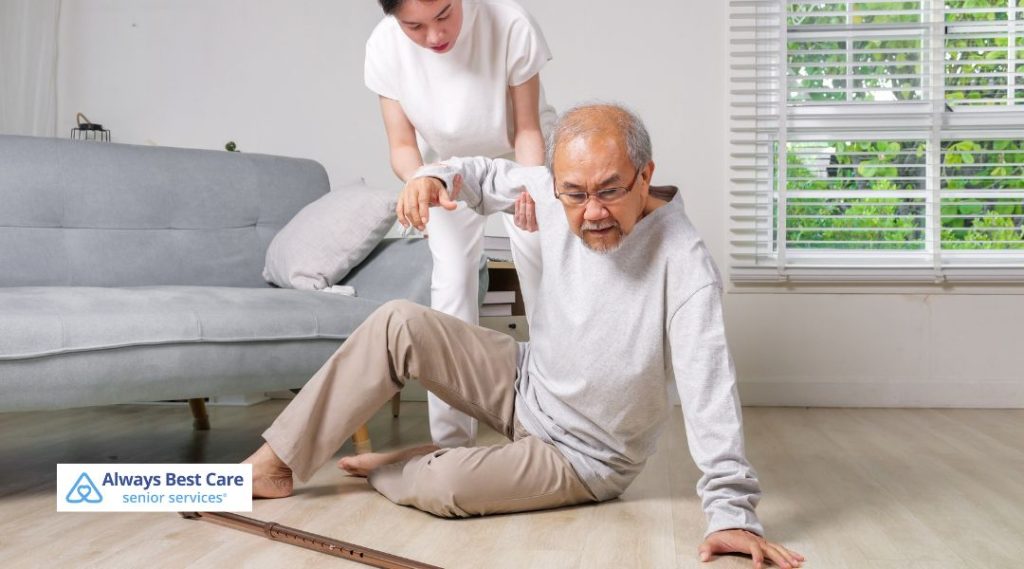
Table of Contents
The Road to Recovery: Why Transitional Care Matters
Leaving the hospital is just the beginning of the recovery journey for seniors. Without the right support, everyday tasks such as taking medications, preparing meals, or even moving around the house can become overwhelming. Transitional care plays a crucial role in bridging the gap between hospital care and full recovery, ensuring seniors have the assistance they need to heal safely and regain their independence.
One of the biggest concerns after hospital discharge is the risk of complications or readmission. Many seniors end up back in the hospital due to medication mismanagement, falls, dehydration, or untreated symptoms.
Proper transitional care helps prevent these issues by providing medication reminders, mobility support, and regular check-ins to monitor recovery progress. When seniors receive the right level of care at home, they are more likely to recover successfully and avoid setbacks.
Our compassionate caregivers provide practical assistance, companionship, and encouragement. Emotional support can make a significant difference in a senior’s motivation to follow recovery plans, stay active, and remain engaged in daily life.
Laying the Foundation for a Safe and Smooth Return Home
Recovering at home after a hospital stay requires more than just rest—it takes careful planning, the right resources, and a supportive environment. Seniors often face new challenges during this transition, from managing medications to navigating their living space safely. Without proper assistance, even routine activities like cooking, bathing, or moving around can become difficult. By taking the necessary steps to prepare the home and establish a care plan, families and caregivers can help seniors feel comfortable, secure, and confident in their recovery journey.
Ensuring a smooth return home means addressing both physical and emotional needs. Safety modifications, medication management, and ongoing medical support all help prevent setbacks. Equally important is providing encouragement and companionship to help seniors stay engaged and positive throughout their recovery. With the right foundation in place, seniors can focus on regaining their strength and independence, knowing they have the support they need every step of the way.
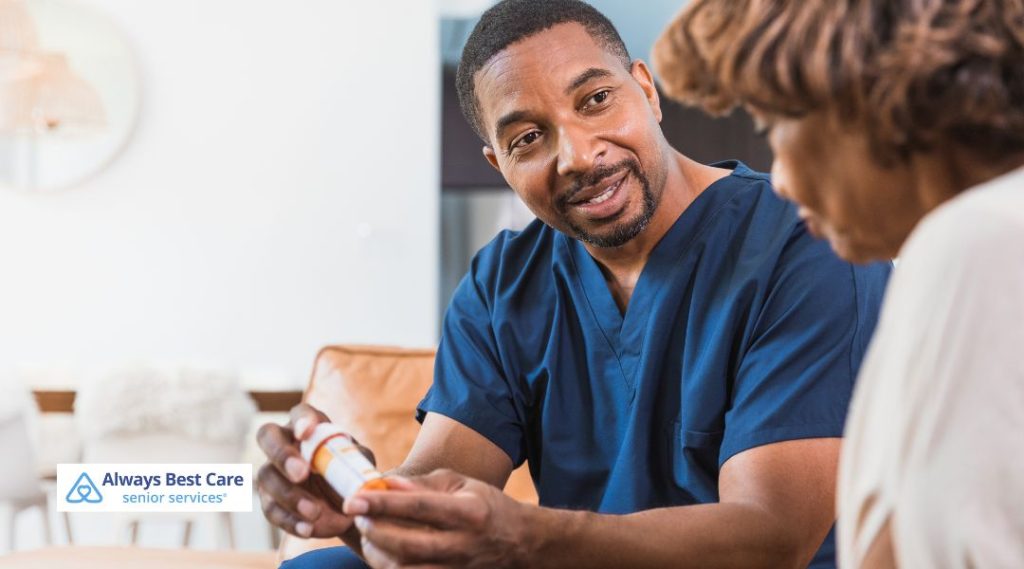
Medication Management for a Stress-Free Recovery
Medication plays a key role in a senior’s healing process, but keeping track of multiple prescriptions, dosages, and schedules can quickly become overwhelming. After a hospital stay, many seniors are prescribed new medications or experience changes to their existing regimen, increasing the risk of missed doses, accidental double-dosing, or harmful interactions. Proper medication management is essential to ensuring a smooth recovery and preventing complications that could lead to hospital readmission.
Creating a structured medication routine helps eliminate confusion and ensures that prescriptions are taken correctly. Organizing pills in clearly labeled dispensers, setting reminders, and maintaining a medication log can make daily management easier. For seniors who need additional support, caregivers can provide timely reminders, monitor for side effects, and coordinate with healthcare providers if adjustments are needed. When medications are managed properly, seniors can recover with peace of mind, knowing they are following their treatment plan safely and effectively.
Transforming the Home Into a Safe Haven
A home should be a place of comfort and security, but for seniors recovering from a hospital stay, it can also present risks. Limited mobility, weakness, or medical equipment can make it harder to move around safely. Falls are a major concern, as they can lead to serious injuries and setbacks in recovery. Making small but meaningful modifications to the home environment can help seniors navigate their space with confidence while reducing the risk of accidents.
Simple adjustments can make a significant impact. Removing tripping hazards like loose rugs and clutter, improving lighting in hallways and stairwells, and installing grab bars in bathrooms all contribute to a safer living space. Rearranging furniture to create clear walking paths and ensuring that commonly used items are easily accessible can also make daily life more manageable. In some cases, assistive devices such as walkers, canes, or stairlifts may be necessary to further enhance mobility and safety.
Beyond physical modifications, a supportive home environment includes emotional well-being. Having a comfortable place to rest, access to nutritious meals, and regular interaction with family or caregivers can help seniors feel secure and cared for during their recovery. By creating a home that is both safe and welcoming, seniors can focus on healing without unnecessary stress or worry.
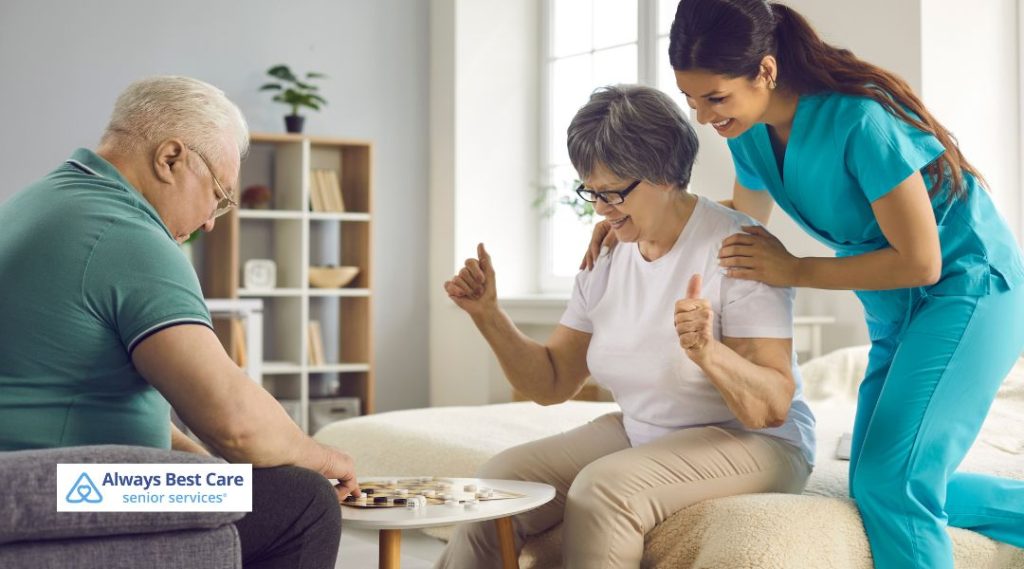
Bridging the Gap Between Hospital and Healthcare Providers
Leaving the hospital doesn’t mean the need for medical care is over. In fact, the period immediately following discharge is when seniors require the most attention to ensure they stay on track with their recovery. A strong connection between home care and healthcare providers is essential in preventing complications, avoiding hospital readmission, and ensuring seniors receive the proper follow-up care.
Coordinating medical appointments, managing discharge instructions, and keeping up with treatment plans can be overwhelming, especially for seniors who may struggle with memory or mobility issues. Ensuring that they attend follow-up visits, undergo necessary therapy, and have ongoing medical supervision is crucial for a successful recovery. Caregivers can play a vital role in bridging this gap by scheduling appointments, arranging transportation, and keeping an open line of communication with doctors and family members.
In addition, caregivers can monitor seniors for any signs of health concerns—such as changes in appetite, mobility, or cognitive function—and report them to medical professionals before they become serious. By acting as a link between seniors and their healthcare teams, caregivers ensure that no aspect of post-hospital care is overlooked, helping seniors recover safely and confidently at home.
Beyond Basic Care: Providing Seniors With the Support They Deserve
Recovering from a hospital stay involves more than just medical care—it requires comprehensive support that addresses every aspect of a senior’s daily life. Many seniors need assistance with tasks such as bathing, dressing, preparing meals, and managing household chores. These everyday activities, which may seem simple, can become overwhelming during recovery. Ensuring that seniors have the right level of care allows them to focus on healing without the added stress of trying to manage everything on their own.
Personalized in-home care provides seniors with a sense of security and independence while ensuring their needs are met. Caregivers can assist with mobility, hygiene, and nutrition while also providing companionship and emotional support. They create a structured routine that keeps seniors on track with medications, follow-up care, and physical therapy exercises, helping them regain strength and confidence.
The goal is to provide not just assistance, but a reassuring presence that makes seniors feel cared for, respected, and valued. A compassionate caregiver can make all the difference in a senior’s recovery journey, offering encouragement and helping them navigate the challenges of returning home after hospitalization.
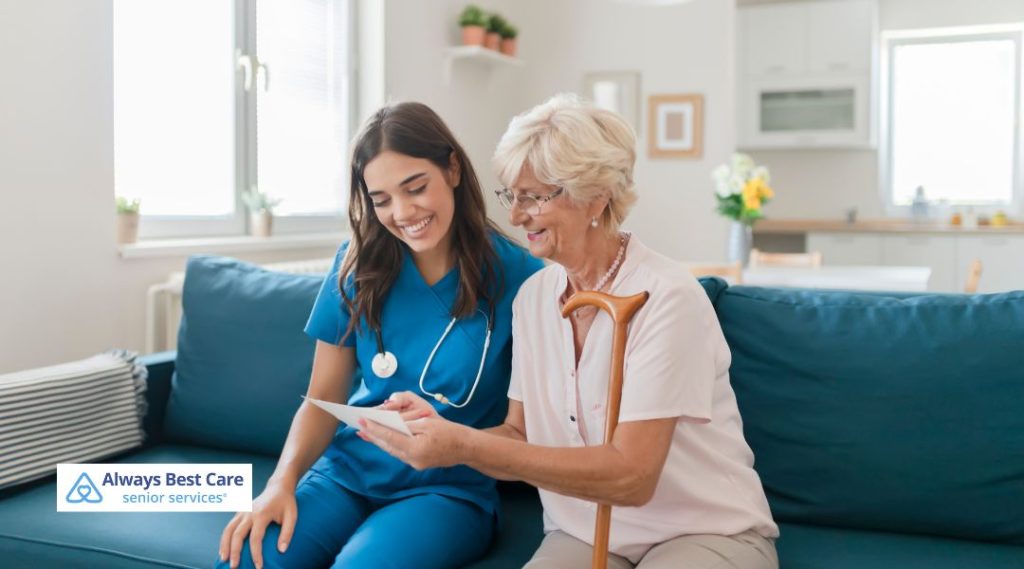
Fostering Emotional Well-Being and Mental Engagement
Physical recovery is only one part of the healing process—emotional and mental well-being are just as important. Many seniors experience feelings of loneliness, anxiety, or even depression after a hospital stay, especially if they are living alone or facing mobility limitations. Social isolation can slow recovery and impact overall health, making emotional support a crucial aspect of post-hospital care.
Engaging seniors in conversation, activities, and social interactions can significantly improve their outlook and motivation. Simple gestures, like spending time talking, playing games, listening to music, or going for short walks, can provide a sense of purpose and joy. Encouraging participation in hobbies, connecting with family and friends through phone or video calls, and finding ways to keep their minds active all contribute to a positive recovery experience.
Caregivers play a key role in fostering emotional well-being by providing companionship and ensuring seniors remain engaged in their surroundings. By addressing not only their physical needs but also their mental and emotional health, caregivers help seniors feel more connected, supported, and empowered throughout their recovery journey. A strong support system ensures that seniors heal not just in body, but in spirit, allowing them to regain their confidence and live life fully.
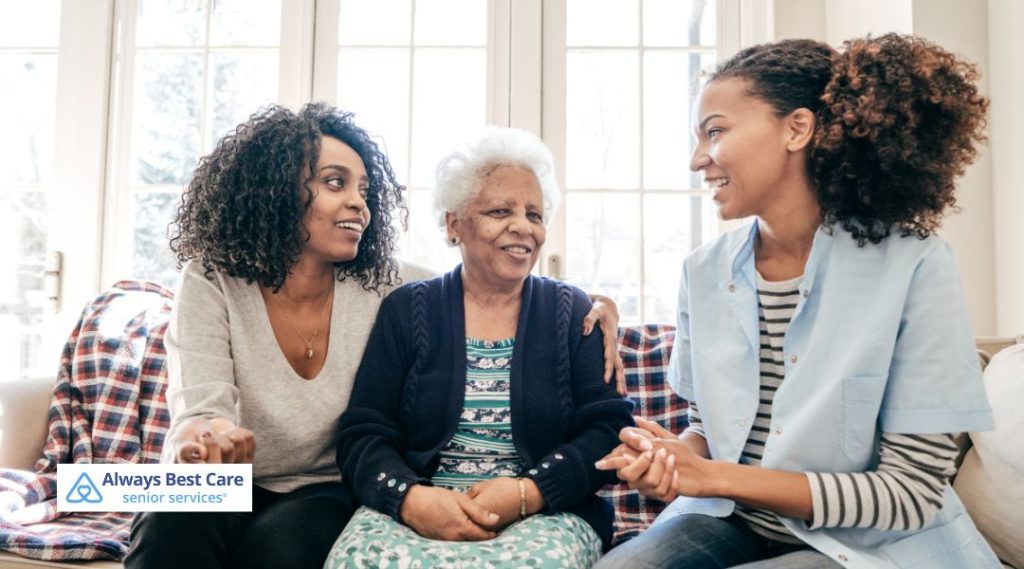
Let Always Best Care Be Your Partner in Post-Hospital Recovery!
From helping with daily tasks and managing medications to preparing nutritious meals and offering companionship, Always Best Care of Friendswood is here to help.
Contact Always Best Care of Friendswood at (281) 954-6096 to schedule a care consultation and explore how we can assist with your loved one’s recovery at home. Let’s ensure they have the right support for a healthy and successful transition.





